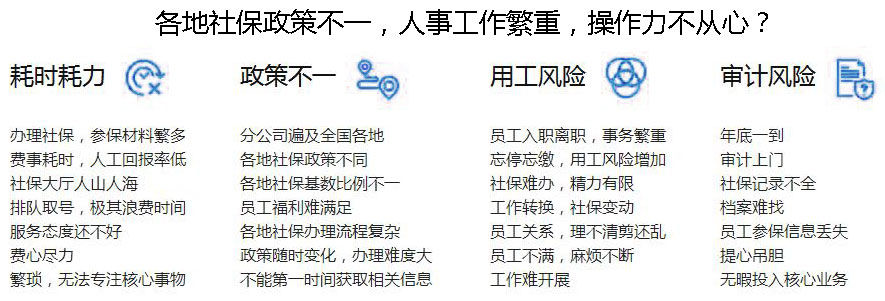- test
- Avia Masters in India Crash Game Dynamics and Betting Strategies
- Avia masters Casino igra z RTP 97%
- Going for The fresh Web based casinos in the Ca: Helpful tips to have 2025
- ten Finest Crypto Casino Betting, Playing United states Sites out of 2025
- Verbunden Kasino Provision ohne Einzahlung originell! 2025
- Jobb valódi pénzes online kaszinók az USA-ban Játssz és nyerj valódi pénzt
- Finest Web based casinos for your Area, Incentives & Earnings
Do Gods Duel Over Human Fortune? Insights from Myth and Modern Play
Introduction: The Mythical Duel of Gods and Its Reflection in Human Fate
Throughout history, human beings have been captivated by stories of divine beings intervening in mortal affairs. Mythological narratives often depict gods as powerful entities engaged in conflicts or alliances, shaping the destiny of humans through direct or indirect actions. This concept of divine intervention and conflict raises profound questions about morality, justice, and fate, which remain relevant even in today’s context.
Modern interpretations, especially in entertainment such as video games and movies, continue to mirror these ancient themes. For example, contemporary games like read more about recent titles demonstrate how mythic ideas of divine power and rivalry are reimagined for new audiences, emphasizing the timeless appeal of divine duels over human destiny.
The Foundations of Divine Power and Human Fortune
Historical Perspectives on Divine Influence
Ancient civilizations attributed significant control over human fate to their pantheon of gods. The Greeks believed Zeus’s authority extended over the natural and human worlds, symbolized by his throne and scepter. Similarly, in Egyptian mythology, gods like Osiris governed life and death, reinforcing the idea that divine beings hold ultimate sway over mortal destinies.
Symbols of Divine Authority
Icons such as Zeus’s throne serve as powerful symbols of divine supremacy. These artifacts represented not just physical authority but also moral and cosmic order. Ritual objects like chalices and sacrifices further embodied the connection between humans and gods, serving as tangible mediums through which divine favor or wrath was expressed.
Ritual Artifacts and Interaction
Offerings—such as sacrifices and sacred vessels—were believed to influence divine favor. These rituals created a structured dialogue between humans and gods, reinforcing the idea that divine influence could be negotiated through tangible acts, although ultimately, gods maintained the upper hand in determining human outcomes.
Mythological Tales of Divine Dueling and Their Lessons
Key Myths of Divine Conflict
One of the most iconic conflicts is the Titanomachy, where Olympian gods, led by Zeus, battled primordial Titans for control. These stories illustrate the struggle for cosmic order and highlight how divine disputes directly impacted human fate, often bringing chaos or renewal. The myth of Zeus’s ascendancy exemplifies how divine conflicts shape the moral fabric of mythic worlds.
Symbolism of Time and Fate
| Mythic Element | Symbolic Meaning |
|---|---|
| Hourglass | Fate’s inescapability and the relentless flow of time |
| Divine Conflict | The ongoing struggle over human destiny |
Consequences for Humanity
Mythological conflicts often resulted in catastrophic events or divine blessings, illustrating that divine disputes had tangible impacts on human lives. These stories serve as allegories for understanding how external forces, perceived as divine, influence morality, justice, and societal order.
Modern Play and Media: Reimagining Divine Duels
Contemporary Depictions of Divine Battles
Modern entertainment frequently portrays gods as powerful characters engaged in conflicts that mirror mythic struggles. Video games, movies, and graphic novels depict divine duels over human fate, often with elaborate narratives and symbolic visuals, making ancient themes accessible to new generations.
Case Study: Gates of Olympus 1000
This popular game exemplifies how modern mechanics symbolize divine influence. Features like spinning reels with mythic symbols, including hourglasses and chalices, evoke the timeless themes of fate and divine negotiations. Such elements serve as allegories, illustrating the ongoing ‘duel’ between divine forces vying for control over human outcomes.
Symbols in Modern Storytelling
Objects like hourglasses represent the inescapable march of time and fate, while chalices symbolize offerings and divine favor. These symbols maintain their mythic significance, connecting modern narratives with ancient stories of divine power struggles.
The Semantics of Divine Conflict: Power, Morality, and Human Agency
Are Gods Truly Dueling Over Human Fate?
Scholars debate whether divine conflicts are literal duels or symbolic representations of cosmic principles. Some argue that gods act out of necessity to maintain order, with human fate as a byproduct. Others view these stories as reflections of human morality projected onto divine beings, emphasizing that humans might be passive recipients rather than active participants in divine disputes.
Moral Implications of Divine Intervention
Divine actions often evoke questions of justice and favoritism. For instance, gods may intervene selectively, rewarding some humans while punishing others, which can be seen as chaos or justice depending on perspective. Modern narratives challenge these notions by questioning whether divine morality is fair or arbitrary, fostering critical thinking about divine justice.
Modern Narratives and Human Agency
Contemporary stories tend to depict humans as active agents capable of influencing their destiny, even within divine conflicts. This shift encourages audiences to consider their own power in shaping outcomes, aligning ancient mythic themes with modern ideas of individual agency.
Non-Obvious Depths: Symbols and Their Hidden Meanings
Zeus’s Throne: A Symbol of Divine Authority
Zeus’s throne is more than a physical seat; it embodies the divine right to rule and the cosmic order. Its depiction in art and myth signifies the ultimate authority that gods wield over the universe and, by extension, human fate.
Hourglass as a Metaphor for Fate
The hourglass symbolizes the inescapable flow of time and the limited nature of human existence. In myth, it often represents the idea that fate is predetermined and unstoppable, echoing themes of divine control and the passage of destiny.
Chalices and Rituals
Sacrificial chalices are tangible symbols of divine-human negotiations. Offering sacrifices was believed to appease gods, symbolizing a bid for divine favor or mercy. These rituals reflect the ongoing negotiation of power between mortals and deities, emphasizing the importance of symbols in maintaining divine-human relationships.
The Intersection of Myth and Modern Play: Educational Insights
Enhancing Engagement Through Myth
Understanding ancient myths enriches the experience of modern games, allowing players to grasp the symbolic layers behind game mechanics. Recognizing that spinning reels or special symbols represent divine influence deepens engagement and fosters appreciation for mythic storytelling.
Using Game Design as Educational Tool
Game developers can craft narratives that teach players about divine rivalry and fate. For example, designing mechanics around symbolic objects like hourglasses or chalices can serve as visual metaphors for complex mythic themes, encouraging players to think critically about the nature of divine justice and human agency.
Fostering Critical Thinking
Analyzing how media portrays gods and divine conflicts promotes critical reflection on the moral and philosophical messages conveyed. This approach helps bridge the gap between ancient myth and contemporary storytelling, making mythic themes accessible and relevant.
Conclusion: Reflecting on the Ongoing Duel—Myth, Media, and Meaning
“Ancient stories of divine duels continue to shape our understanding of morality, justice, and fate, proving that the timeless struggle for power and influence remains deeply embedded in human consciousness.”
The enduring relevance of divine duels highlights their profound influence on both ancient societies and modern media. Symbols like hourglasses and chalices serve as bridges, connecting mythic themes with contemporary narratives. As entertainment continues to explore these conflicts, they inspire us to reflect on our own agency within the cosmic or societal struggles that define human existence.
Exploring these stories and symbols not only enhances our appreciation of myth but also encourages critical thinking about morality, justice, and divine influence. Whether through ancient myths or modern games like read more, the ongoing duel over human fate remains a compelling story that continues to resonate across ages.

常见社保问题:
Q1:社保代理合法吗?
A1:合法。
相关法律:《劳动保障事务代理暂行办法》第二条规定“本暂行办法所称的劳动保障事务代理,是指劳动保障事务代理经办机构,根据协议,接受用人单位或劳动者个人的委托,在一定期限内为委托方代管劳动者个人档案、代办劳动人事、社会保险等劳动保障事务的行为”
A2:社保代理收费标准为19.8元/月起,代理办理社保相应服务,主要有:
1.工伤认定、评级、报销手续;
2.养老退休手续;
3.生育津贴、产前检查费报销、申领手续;
4.参保人员的医疗费报销;
5.失业保险金领取手续
6..……
A3:养老保险需要交满15年。养老金领取按当地社保领取政策为准。
A4:医保具体连续缴纳时限,各地社保政策有不同的规定,成都规定要连续缴纳12个月。医保断缴后即暂停享受医保待遇,欠费3个月以内补缴的,不算断缴,可连续享受社保待遇,欠费4个月以上的视为中断。
A5:生育保险要连续交满12个月,才能享受生育待遇。生育保险具体报销标准应看各地社保政策规定。

